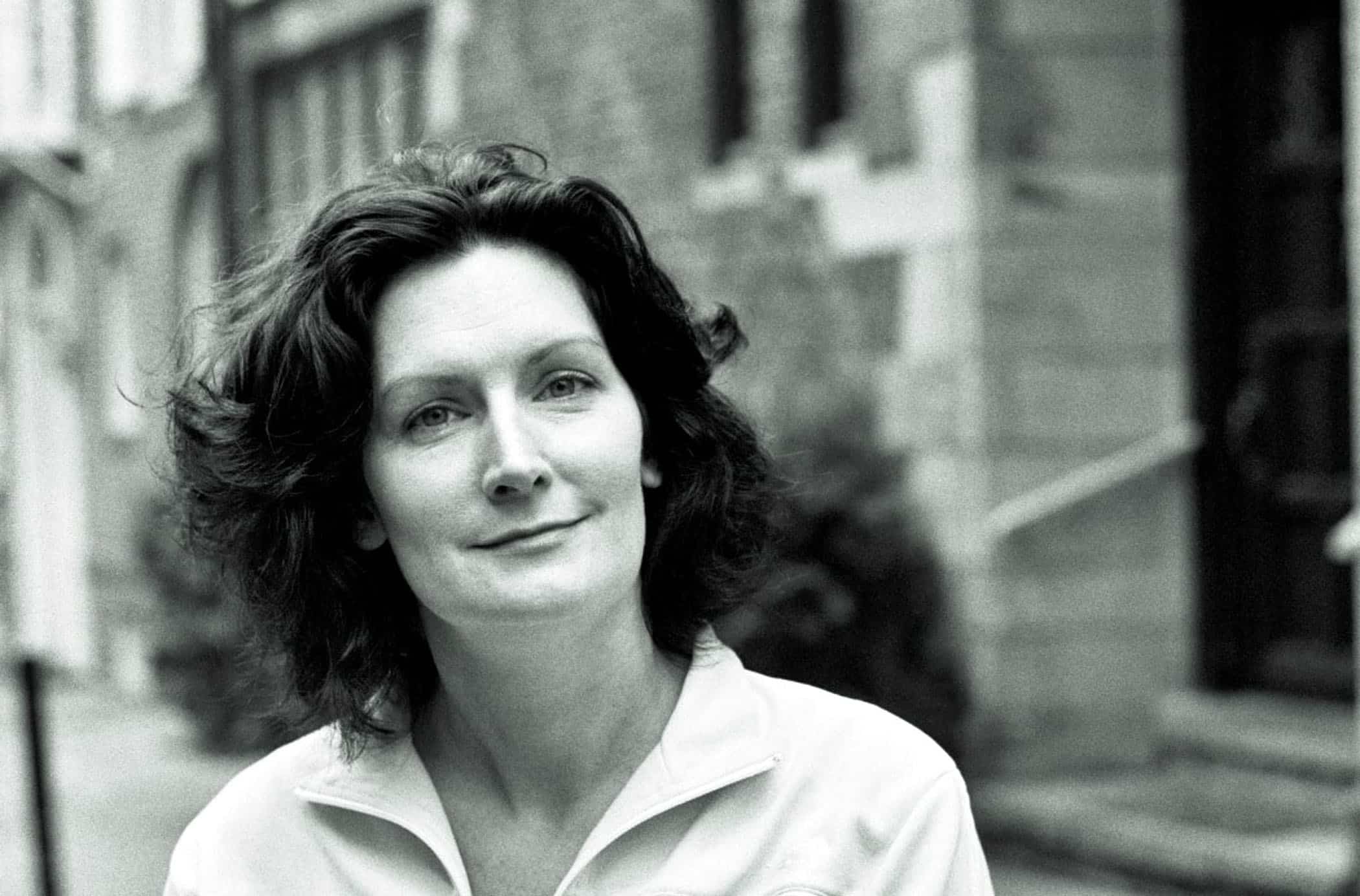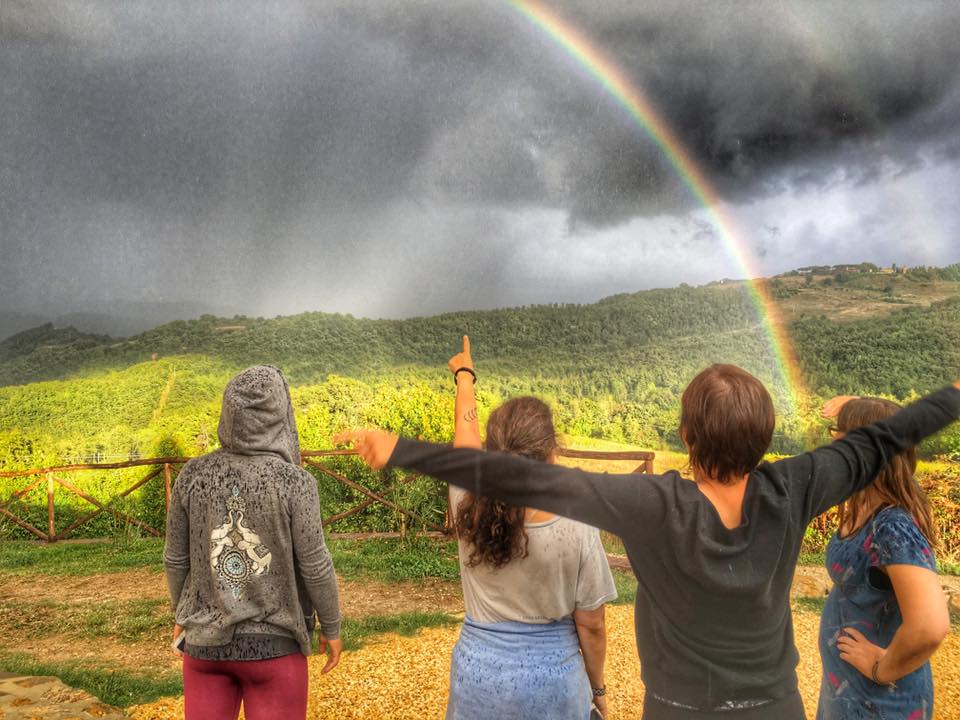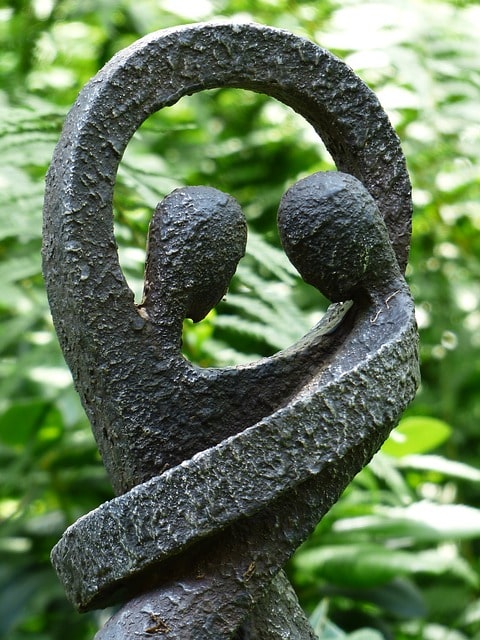By Susan Barr-Toman
A few months after my husband died, Patti Smith was coming to the Philadelphia Library to talk about her second memoir M Train, a collection of essays. I called Missy right away. Patti was our thing. I was actually excited about something. We had to go together. Missy had given me Just Kids a few years ago. I’d never been a follower of Patti’s music, but I loved her memoir about a lifelong friendship founded on love and art. The two of us had a mini-pilgrimage to NYC. We’d traveled to the Hotel Chelsea, which unfortunately was under renovations at the time, and drank a cocktail next door at the El Quijote, where Patti had hung out with Janis Joplin.
The library would be my first outing since Pete died. At this point, everything was hard—eating, shopping, watching TV, making phone calls, getting out of bed. I needed to look forward to something that didn’t require much of me. But even with this event that required nothing of me, I needed someone to be with me in public, among strangers. The day before the event, Missy said she couldn’t make it.
When my husband was diagnosed with terminal cancer, people—those who’d experienced the death of a close loved one and the therapist I’d started seeing—warned me that death would change my relationships. Those who I expected to be there for me might not be. Others, unexpected, would be. Death affects people profoundly. Some people can’t be around it for an array of reasons. They’re afraid or they’ve just been through it themselves. And it turned out to be true. People I barely knew showed up and people I thought would be my core support did not.
Missy was one of those people. I’d imagined when Pete died that she’d practically move in with me and the kids. Instead, a few months before he died, she abruptly moved to D.C. for a new job. Of course, she hadn’t expected that she’d move in with me, and over the last few years, she’d taken care of her parents until they both passed on. She needed a new start; she’d had enough of death.
Without her, I didn’t want to go to the event. I was feeling a little devastated. But years ago, I had renounced the Catholic guilt trip. I would not make her feel bad in the hope that she would find a way to come. I said nothing.
The next night I walked over to the library. At each corner I wanted to turn around and go home. I wasn’t sure I could do this alone. It would be hard, yet it was Patti. I felt I needed to go, was destined to go, to hear what she had to say even if it wasn’t something I was ready to hear. Seeing her felt simultaneously really important—moving on with my life, getting out—and pointless. No one, especially Patti, was expecting me. No one would know if I went or not. I could just listen to the podcast when it was posted a few days later. I could just go home and climb into bed. Maybe I could just read the book.
I’d started reading M Train, but hadn’t made much progress, because reading too had become difficult after Pete’s death. I knew Patti was a widow. Over twenty years ago, Fred “Sonic” Smith died at 45, leaving her a widow with two children. Pete died at 46, leaving me the same. If I was afraid to read the book in the privacy of my own home, what the hell was I doing going to a public reading?
I was alone and I didn’t want to be.
At the library, I picked up my ticket and descended to the auditorium, entering the crowd alone. There were still a few empty seats. I decided to stay close to the doors, so my exit wouldn’t be too disruptive if I had to flee. I sat and reminded myself to breathe. I could do this. This was simple. I just had to sit and listen. Nothing was expected of me. I didn’t have to be there, no matter how much I wanted to be there. I could leave. I could leave. I could leave if I needed to.
Then a few aisles ahead of me, I spotted a familiar profile. Was that Marjie’s boyfriend? I swayed to my right, to my left and then I saw Marjie with a free seat next to her. I was practically in tears at the sight of her. Would she mind if I joined in on their date? Is seeing Patti a romantic thing?
They hugged me and invited me to sit next to them. Even though I was three seats in and leaving would be more difficult, I sat. I felt calmer beside her. I could do this. Marjie was our neighbor for years at our old house; our children had attended the same preschool. She’d been through a difficult divorce, but seemed to have found some happiness, some peace.
Marjie explained that she didn’t know about the event until that very morning. She just happened to hear about on the radio and decided she had to go because she’d just missed her in concert. Of course the tickets had been sold out for months. They’d sold out within hours. That didn’t dissuade her. She called throughout the day, asking, checking in, until they finally had tickets for her. She had no idea I’d be there. Only Marjie could pull this off, only Marjie could think she could pull this off.
I took out my paper and pen to take notes, a habit I developed from years of writing about books and author events. At the top of the notepad next to the University of Pennsylvania shield, it read Penn Medicine – Silverstein 12 World Class Care. I stared at it for a moment trying to remember for which surgery we’d stayed there. Was it New Year’s Eve 2013? The night the orderly had made two swans out of hand towels. Our room overlooked the Quad. Or maybe that was Rhodes or Ravdin. I’d written (suffering is suffering) under it.
Patti Smith was feeling under the weather. She’d arrived early to pre-sign books so she could leave immediately after the talk. She was congested and had a scratchy throat. She sat and talked with Laura Kovacs the Associate Director of Author Events at the library about her love of Philadelphia, books and art, and how being an artist was a vocation that involved a lot of devotion and hard work. Along with the essays in M Train are her Polaroid photographs. She explained that she takes photos, because she gets to see things that others don’t get a chance to; she collects them like relics to share with those who can’t take these pilgrimages to Virginia Woolf’s cane, Hermann Hesse’s typewriter or James Joyce’s spectacles. She takes these photos to lift these objects, which she believes contain the energy of their owners, to the realm of art. Her pictures are her talismans or souvenirs of her travels, her “Polaroid rosary.”
Patti is so real. There is no pretense. She’s like a friend who can see the truth of the matter and would tell you the truth whether you wanted to hear it or not.
When the interviewer asked her about all the loss, the deaths, mentioned in M Train (her mother, her brother, her husband,) Marjie took my hand; I put down my pen.
“I do walk with the people I’ve lost,” Patti said, her voice hoarse. “They do pop up and it is sad sometimes, but to not have them would be so much sadder. When you lose people—they have that phrase that time heals all wounds, that’s not true at all. Nothing, nothing really heals wounds. It’s just that in time you learn how to ride it out. It’s like a roller coaster….” Marjie squeezed my hand.
“Sometimes,” Patti continued, “I’m just minding my own business and all of a sudden my brother or my husband or my parents or our cat comes almost right in my face and it takes your breath away, but it’s wonderful to have known these people and wonderful to revisit with them or them coming into your consciousness when you’re daydreaming or coming into your dreams. We should never shut the dead out. They’re dead. But what does that mean? They’re within us. They’re in our consciousness and we should enjoy them.”
I wondered as Marjie’s thumb rubbed the back of my hand, if that is what happened today, if Pete entered her consciousness so that she would hear about Patti Smith, so she would be here to hold my hand. That he had done this without her knowing, so that I wouldn’t be so alone in my aloneness. So she could be the person who could just sit with me in my grief, sit with me and listen to Patti, who walked with the dead and wrote about it.
After Marjie and her boyfriend dropped me off, after the kids went to bed and as I got ready to climb into bed with my copy of M Train, I thanked Pete for having Marjie show up in my time of need. I know from experience that the dead can’t do much for you. Otherwise they surely would have cured Pete. Still, maybe they could do little things, and it’s the little things that can make a moment bearable, make a moment beautiful. Maybe he could make certain that someone hears about Smith coming to town, someone who would want to go and manage to make it happen, someone who could be there for me.
I stayed up late to read a few chapters of M Train. For me, it read like a guide on how to be alone in the world. While Patti is still conversing with the dead, she writes, “We seek to stay present, even as the ghosts attempt to draw us away.”
The next day, when I was lying on my bedroom floor meditating, a breeze came through the window, caressing my forearm. Pete I thought. He’d visited before on a night when I had trouble remembering one of the names of our daughter’s imaginary friends from her toddlerhood. It was him remembering, telling me the name. With Pete, I felt death had brought our relationship not to an end, but to a new phase. One in which for him everything had been revealed or remembered, but he could no longer communicate as he could in life. All that knowledge.
This time the breeze came through to touch my arm and said, You are loved. I felt it everywhere, on a cellular level. An overwhelming feeling that nearly lifted me off the floor. Perhaps because he’d had such difficulty expressing that in life, it was like a pent-up emotion finally bursting forth. A release. An acceptance. An understanding. A great regret for having taken so long to tell me.
I remembered something Patti had written in her essay The Well. “How is it that we never completely comprehend our love for someone until they’re gone?” What if, I thought, it works the other way? What if the dead don’t realize how much they love us, the living, until they’re gone? What if in death we rise above unburdened of our humanness, no longer concerned with health or wealth, and we understand perhaps that it was about love, connection, community. Everything becomes clear and we realize it’s over. Our one human experience to use our hands, our eyes, our voices to show that love, make those connections, create that community is over. And we gaze upon our loved ones and long to truly see them, hold them, love them with this new understanding, this wonderful heartbreaking knowledge that we are in the heavens and are no longer human.

Susan Barr-Toman’s debut novel, WHEN LOVE WAS CLEAN UNDERWEAR, was selected by Ann Hood as the winner of the Many Voices Project. Her story “Town Watch” was anthologized in SOUTH PHILLY FICTION (Don Ron Books 2013). A Pushcart nominee, Susan has had work appear in r.kv.r.y. quarterly literary journal, LiteraryMama.com, and Philadelphia Stories. She received her MFA in creative writing from Bennington College and now teaches creative writing at Temple University.



Hi, Susan.
Thank you so much for sharing this beautiful piece. I found it extremely comforting, even though I’ve not experienced loss on the same level as yours. I’m sure it’s one to which I’ll return in the future.
Take care,
Casey
Beautiful essay. Thank you for sharing.
I am up before the Sun this Thanksgiving day. Putting love up in the food I will share with my family later today. I miss my people who have gone on to the very insides of my bones..especially on Holidays. Im cooking family recipes in skillets and using kitchen things I inherited or lovingly culled from their kitchens. This is a perfect day to read your love filled words of encouragement and rememberance. Thanks Susan and Happy Thanksgiving.
Thank you, Rachael. One of the strongest connections we have to each other is food – shared recipes, memories around the holiday table. The kitchen can be sacred. Happy Thanksgiving to you and your family!